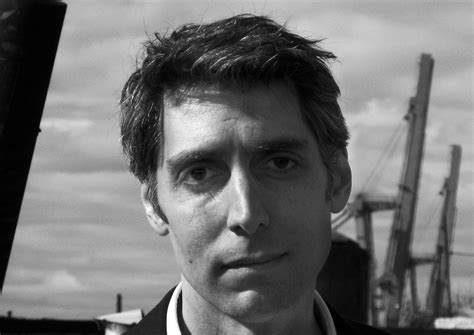A Quote by Sasha Abramsky
As a country, Americans have to find a way to keep our cities solvent. If large numbers of cities no longer have the necessary tax base, we have to find federal methods to intervene. If we don't, there's a risk of dozens of cities simply being left to their bankrupt fates - and I can't see how that serves anybody's interests in the long run.
Related Quotes
Fifty percent of the world's population lives in cities. In a couple of decades, 70 percent of the world's population will be living in cities. Cities are where the problem is. Cities are where the solution is, where creativity exists to address the challenges and where they have most impact. This is why, in 2005, the C40 was founded, an organization of cities that address climate change. It started with 18 cities; now it's 91. Cities simply are the key to saving the planet.
Nothing lasts forever. But—especially as it seems to me cities and humans are symbiotically and inextricably bound at this point—I hope cities have a good, long run. Plus, cities are beautiful creatures in their own right; and as with us, their vulnerability and ephemerality are part of that beauty.
For the most part, French cities are much better preserved and looked after than British cities, because the bourgeoisie, the people who run the cities, have always lived centrally, which has only recently begun to happen in big cities in England. Traditionally in England, people who had any money would live out in the suburbs. Now, increasingly, people with money live in the cities, but this has changed only in the last 20 or so years.
By rebuilding transportation so that you're not owning this thing that just sits there all the time, you get to rebuild cities in the process. If we do this right as a country, we have a chance to re-create our cities with the people, rather than cars, at the center. Our cities today have been built for the car. They've been built for car ownership. Imagine walking around in the city where you don't see any parking lots and you don't need that many roads.
You have to take in the whole picture, and ask, "What is it you want? What kind of world do you want?" So, I have drawings of different cities. Those cities have an end goal; they're not just cities. The end goal of those cities is to make things relevant to people that they respond to. There's no other way.
We fight for territory. We see it in our Congress, we see it in our political systems, we see it in our ways of life, how separated we are. When we moved out of the cities and we lost all of the memory that was in cities, and we - one of the highest achievements in our culture is to be able to segregate yourself from everyone else, and the deep thing is the deepest punishment is solitary confinement.
There's no getting around the fact that some cities face long odds, and governments and societies are going to be confronted with some hard decisions. Most importantly, cities have to recognize that in times of crisis they have to help themselves. Governments, no matter how well intentioned, can only do so much, especially when they themselves are so strapped for cash, as the U.S. is now. Government money will probably flow to cities and regions with good prospects for the future, so as not to risk money even further by pouring it into stalled economic models.
































